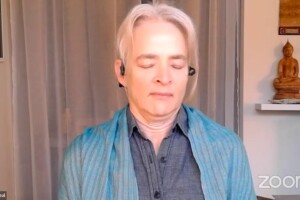
What is mindfulness? In simple terms, it is a state of awareness and active attention to the present moment, with an emphasis on observing thoughts and feelings without judgment. Living mindfully means living in the present moment, not anticipating the future or dwelling on the past. Mindfulness focuses on labeling thoughts and feelings objectively, which helps to prevent self-criticism and identify difficult emotions. Here are some ways to practice mindfulness:
Become a “witness” to your thoughts
Become a “witness” to yourself by observing your own thoughts. Your thoughts and the events they evoke can either strengthen or weaken your mind. Meditation is an excellent way to strengthen your mind. By cultivating witness consciousness, you’ll learn how to find your center and come up with workable solutions. Practicing meditation can also help you clear your mind of any nagging worries and anxieties.
Pay attention to sensations in your body
When practicing mindfulness, pay attention to sensations in your body. Notice how you feel and name each sensation, without judgment. Let go of the thoughts that are distracting you. This can take you a long way toward becoming more aware of your body and its sensations. You may find yourself thinking about something else entirely. By being aware of your thoughts and sensations, you can practice mindfulness in a much deeper way than you might think.
Avoid self-criticism
Self-criticism is the process of telling oneself that you are wrong. While these thoughts may be entirely true, they are based on your feelings, rather than facts or evidence. Furthermore, they may be based on black-and-white thinking, which ignores nuance and causes negative behaviours. Ultimately, the best way to avoid self-criticism is to practice mindfulness. Listed below are some ways to avoid self-criticism and to increase your mindfulness practice.
Avoid judgment
To practice mindfulness, you must refrain from any kind of judgment. This includes focusing on the present moment, without judging the past or the future. You must take a deep breath to relax your mind and observe your surroundings. While doing this, avoid analyzing the positives and negatives of the situation. Focus on the present moment to create a relaxed mind and to enhance your meditation practice. By avoiding judgment, you can find the beauty of life in all its forms.
Reduce stress
Mindfulness exercises are an excellent way to reduce stress naturally. These exercises involve watching your breathing and setting an intention to be aware of your thoughts. Unlike traditional exercises, mindfulness doesn’t require you to have a particular experience. By becoming aware of your thoughts and feelings, you can improve your capacity to cope with stress. Here are some of the benefits of mindfulness exercises. All are easy to learn and use. So, what’s stopping you from trying them?
Improve sleep
Researchers have demonstrated that improving sleep quality with mindfulness training may have beneficial effects on overall health. Insufficient sleep negatively impacts cognitive abilities and immune function. Insomnia is also associated with high stress levels, which are a common cause of sleep problems. Mindfulness training may be an alternative to sleeping pills for those with insomnia. This course teaches participants how to improve sleep using mindfulness practices. A full-day retreat is also required for the course.
Reduce cortisol
A recent study published in the Journal of Clinical Psychology demonstrates that regular practices of mindfulness can help to reduce the levels of cortisol in our bodies. We produce this hormone during periods of stress to help us respond to the threatening situation. It is produced by the adrenal gland, located just above the kidneys. During times of stress, cortisol increases the heartbeat and tenses our bodies. Mindfulness meditation can help our minds to better process information and respond to challenges.





